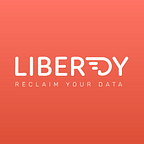GDPR Portability Rights: Burden or Blessing for Your Business?
What is the GDPR Right to Data Portability?
The GDPR, The General Data Protection Regulation is an EU privacy bill set to take effect on May 25th, 2018. The aim of the bill is to protect the rights of data subjects. It states that they are the rightful owners of their personal information and must provide their consent for its use.
Article 20 of the GDPR, the right to data portability states that:
“The data subject shall have the right to receive the personal data concerning him or her, which he or she has provided to a controller, in a structured, commonly used and machine-readable format and have the right to transmit those data to another controller without hindrance from the controller to which the personal data have been provided.”
In other words, data subjects have the right to request a copy of all the digital data collected on them by controllers, online companies like Google, Facebook and Amazon. It should be available in an easy-to -access, electronic format. They then have the right to have that portable data transmitted directly to any party they choose.
Why Is It Important?
The right to data portability is essential. It empowers data subjects, so they can reclaim control over the information that relates to them, choosing for themselves with whom to share their data. It also streamlines processes for a better user experience, as it promotes system interoperability.
The right to portability serves to introduce fairness and equality to the online economy, not just for the user but also for the service provider. Less established providers can now compete more effectively, as they can onboard new users who wish to transfer their data swiftly and smoothly.
There is no doubt that a lot of expense will be entailed in identifying the destination for transferred data, reformatting and then managing the porting of information but the potential value to all parties in the digital ecosystem is immense.
How Can the GDPR Right to Portability Be Leveraged?
A number of online entities are harnessing the new bill, and the right to portability in particular, to disrupt the online data marketplace.
One such entity is the Liberdy Data Foundation a new non- profit that allows user data to be traded, while safeguarding user privacy and guaranteeing a fair, advertising market.
As a blockchain-based initiative, the Foundation is totally transparent, encrypted and decentralized making the system almost hack-proof since there is no single body controlling the flow of data.
The Foundation gains user-consent and has the user’s data anonymized, encrypted and stored in the cloud. It then, aggregates and segments the data offering the user to select which personal information to share and to whom to sell it. Users are paid by their chosen advertisers for its use. Meanwhile, the advertiser benefits from accurate permission-based, verified data that was not previously available outside the walled gardens of Google and Facebook.
While businesses are now burdened with having to gain user consent for the use of their users data, using Liberdy, they can incentivize users to get their consent with enhanced privacy features and pay them for the use of their data. Opening a new revenue stream that offer users, for the first time in history, to pay for premium services and subscriptions with their data.
Privacy is paramount, and while the user can take advantage of an anonymous Single Sign On, the publisher gains a new revenue channel, benefiting from more enhanced data and a new pool of potential users.
The right to portability is ushering in a new reality for the data trading marketplace, with the help of data privacy and equality activists such as the Data Foundation. All participants in the exchange of data can now benefit equally. It is a potential goldmine for data subjects and all the businesses with which they share their information. They can earn from the use of their data, choosing to anonymously share data such as gender, location, demographics, likes and dislikes, across all online platforms to create a mega-profile, which the Foundation can compile to provide advanced targeting capabilities.
Advertises can now access first-hand, information directly from multiple data sources provided by the user. They benefit from highly targeted marketing, receiving validated, accurate information that considers personal attributes, intent, as well as the user’s purchase decision-making stage. A level playing field offers all advertisers access to the first-hand data that was previously only available from the digital giants Facebook & Google. In addition, publishers become both a data beneficiary and a commercial partner. They can harness the data pool and more effectively sell value added services like premium features or subscriptions.
Without a doubt, businesses preparing for the GDPR bill to take effect have challenges ahead of them, particularly with gaining consent and providing electronic access to data. However, the rewards for those companies that manage to leverage the bill to their benefit could be substantial.
The Liberdy platform is set to launch in 2018. To learn more about the company, email us at info@liberdy.io, or join our communities, so you can get the latest updates.
